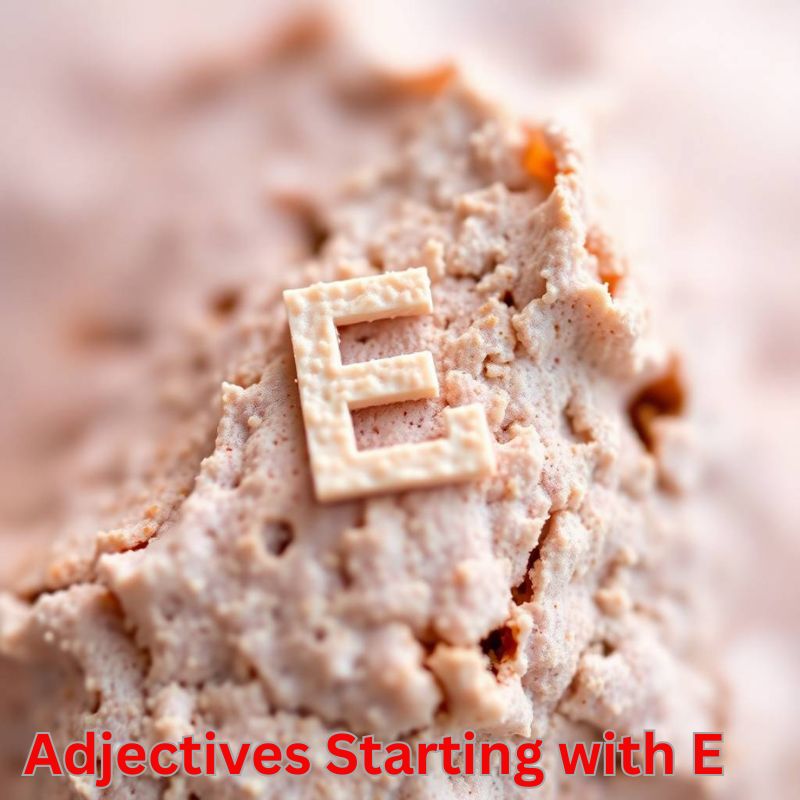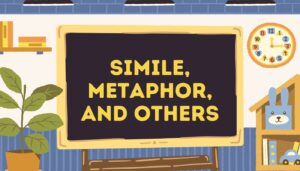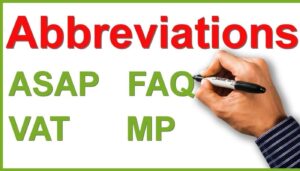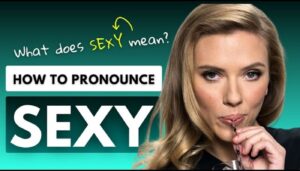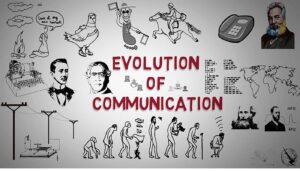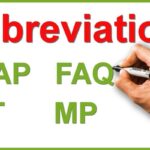Language is a powerful tool, and the way we use words can significantly influence how we communicate, connect, and even persuade others. Whether you’re crafting an email, writing a report, or just looking to improve your everyday conversations, having a rich vocabulary can make a big difference.
Today, we will focus on adjectives words that describe or modify nouns—and explore 30 adjectives that start with the letter “E.” These adjectives will not only expand your vocabulary but also help you express yourself with more precision and flair.
The Importance of Using Descriptive Adjectives
Adjectives are the building blocks of vivid, engaging language. They help paint a picture in the listener’s or reader’s mind, adding detail, emotion, and depth to your messages.
Imagine reading a book where everything is described as “good,” “bad,” or “okay”it would be quite dull, right? Now, think of the impact when a writer uses words like “elegant,” “energetic,” or “exquisite.” The ability to choose the right adjective allows you to convey the exact feeling, mood, or setting you wish to express.
Whether you’re crafting stories, giving presentations, or just wanting to sound more articulate, a diverse range of adjectives can elevate your language.
In this article, we’ll dive into a variety of adjectives starting with “E” from those that describe personality traits to those that evoke vivid imagery. Let’s explore!
Describing Personality with “E” Adjectives
When it comes to describing people, adjectives starting with “E” can add a lot of nuance. These words can depict character traits, moods, or temperaments, and are especially useful in social settings or professional communication.
- Energetic: Full of energy, active, and enthusiastic. For example, “She’s an energetic leader who inspires her team.”
- Empathetic: Showing the ability to understand and share another person’s feelings. Example: “His empathetic nature makes him a great counselor.”
- Eloquent: Fluent or persuasive in speaking or writing. Example: “The president’s eloquent speech moved the audience.”
- Enterprising: Showing initiative and resourcefulness. Example: “Her enterprising attitude led to a successful business venture.”
- Excitable: Easily excited or emotional. Example: “He’s an excitable person who loves surprises.”
- Evasive: Avoiding commitment or direct answers. Example: “The politician gave an evasive response to the reporter’s question.”
Evoking Sensory Imagery with “E” Adjectives
Adjectives can also help paint pictures and evoke sensory experiences. These “E” words can help describe how things look, feel, sound, or smell, making your language more vivid and immersive.
- Exquisite: Extremely beautiful or delicate. Example: “The exquisite painting left everyone in awe.”
- Elegant: Stylish, graceful, and sophisticated. Example: “Her elegant dress was the highlight of the event.”
- Eerie: Strange and frightening, often in a supernatural sense. Example: “The eerie silence in the abandoned house gave me chills.”
- Emollient: Softening or soothing, especially to the skin. Example: “The emollient cream healed my dry skin.”
- Earthy: Resembling or characteristic of the earth; natural. Example: “The earthy scent of fresh soil filled the air.”
Expressing Emotions with “E” Adjectives
Emotions are at the core of human experience, and adjectives beginning with “E” can help you capture feelings in a more precise manner. These words can add emotional depth to your interactions, whether you’re writing or speaking.
- Elated: Extremely happy or delighted. Example: “She was elated when she received the job offer.”
- Exasperated: Annoyed or frustrated, especially from a prolonged situation. Example: “He was exasperated after waiting for hours.”
- Exultant: Joyfully triumphant. Example: “The team was exultant after their victory in the championship.”
- Estranged: Emotionally distant or alienated from someone or something. Example: “After years of silence, they remained estranged.”
- Euphoric: Overwhelmingly happy or elated. Example: “She felt euphoric after completing the marathon.”
Describing Appearance and Style with “E” Adjectives
Appearance and style are often the first things we notice about a person, place, or thing. Here are some “E” adjectives to help you describe appearance in a more detailed way.
- Eye-catching: Attractive or noticeable, likely to catch one’s attention. Example: “The eye-catching display at the store drew in a crowd.”
- Eccentric: Unconventional or slightly strange in a way that is interesting or charming. Example: “His eccentric fashion sense always stands out at parties.”
- Enigmatic: Mysterious, puzzling, or hard to understand. Example: “She wore an enigmatic smile that left everyone guessing.”
- Effulgent: Shining brightly; radiant. Example: “The effulgent sunlight made the landscape glow.”
Adjectives for Things and Places with “E”
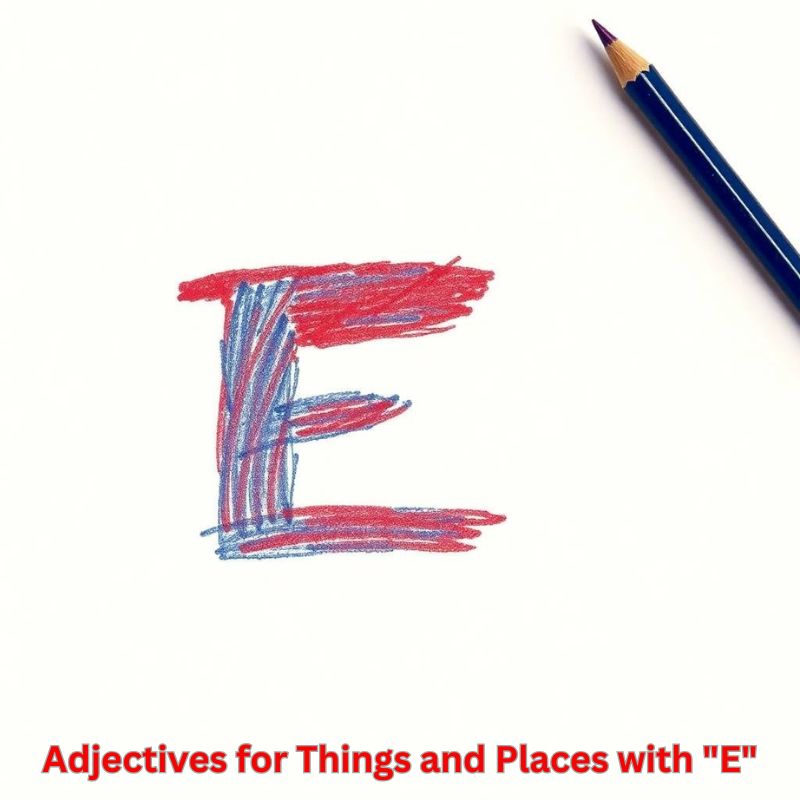
Finally, adjectives starting with “E” can also be used to describe objects, locations, or concepts, making your descriptions more specific and engaging.
- Enduring: Lasting over time; durable. Example: “The enduring beauty of the ancient ruins continues to attract tourists.”
- Elusive: Difficult to find, catch, or achieve. Example: “The elusive solution to the problem has kept experts stumped.”
- Expansive: Covering a large area; extensive. Example: “The expansive view from the mountaintop was breathtaking.”
- Elegant: Gracefully refined or dignified. Example: “The elegant ballroom was decorated with grand chandeliers.”
Describing People and Personality
These adjectives help describe various personality traits and behaviors, enriching your ability to characterize people in more nuanced ways.
- Ebullient: Overflowing with enthusiasm or excitement. Example: “Her ebullient personality makes her the life of the party.”
- Effervescent: Vivacious and high-spirited; bubbly. Example: “His effervescent attitude brought a sense of joy to the workplace.”
- Envious: Feeling discontented or resentful because of someone else’s possessions, qualities, or luck. Example: “She felt envious of her friend’s success.”
- Evasive: Tending to avoid direct answers or commitment. Example: “His evasive responses during the interview raised suspicion.”
- Egotistical: Excessively self-centered or self-important. Example: “His egotistical remarks alienated his colleagues.”
- Endearing: Inspiring affection or love; charming. Example: “Her endearing smile made everyone feel welcome.”
- Exemplary: Serving as a model of excellence. Example: “He is an exemplary employee, always going above and beyond.”
- Exuberant: Overflowing with excitement, energy, or enthusiasm. Example: “The exuberant crowd cheered wildly at the concert.”
Describing Personality and Character
The way we describe people’s personalities plays a crucial role in understanding and communication. These “E” adjectives will help you describe various traits in a more specific and accurate way.
- Empathetic: Understanding and sharing the feelings of others. Example: “Her empathetic response showed how deeply she cared.”
- Enthusiastic: Showing strong excitement or eagerness. Example: “He was enthusiastic about the new project and eager to get started.”
- Erratic: Unpredictable or inconsistent in behavior. Example: “His erratic decisions caused confusion in the office.”
- Evasive: Tending to avoid direct answers or commitment. Example: “Her evasive behavior made it hard to understand her true intentions.”
- Engaging: Attracting or holding attention in a pleasant way. Example: “The teacher’s engaging lectures made learning enjoyable.”
- Entertaining: Providing amusement or enjoyment. Example: “His entertaining stories always lightened the mood at parties.”
- Enigmatic: Mysterious and difficult to understand. Example: “The enigmatic artist rarely gave interviews, preferring to remain private.”
- Exuberant: Filled with energy, enthusiasm, and excitement. Example: “Her exuberant personality made her a favorite at social gatherings.”
- Egotistical: Self-centered and excessively focused on oneself. Example: “He is so egotistical that he rarely thinks about others.”
- Exemplary: Serving as a model of excellence. Example: “She is an exemplary student, always going above and beyond expectations.”
Describing Emotions and Feelings
Emotions are complex, and adjectives can help convey a wide range of feelings. Here are more “E” adjectives that can be used to describe emotions effectively.
- Ecstatic: Extremely happy or joyful. Example: “She was ecstatic after hearing the news of her promotion.”
- Envious: Feeling jealousy over someone else’s possessions, qualities, or achievements. Example: “He was envious of his friend’s success.”
- Exasperated: Frustrated, especially due to repeated problems or delays. Example: “She was exasperated after waiting for hours in the queue.”
- Elated: Filled with great joy or happiness. Example: “The team was elated after winning the championship.”
- Exhilarated: Feeling great excitement or exhilaration. Example: “The roller coaster ride left me exhilarated.”
- Euphoric: A state of intense happiness or bliss. Example: “The crowd was euphoric after the concert ended.”
- Estranged: Emotionally distant or alienated from someone. Example: “They became estranged after years of misunderstandings.”
- Embarrassed: Feeling self-conscious or ashamed. Example: “He was embarrassed when he tripped in front of the whole class.”
- Elusive: Difficult to define or capture; escaping from understanding. Example: “The concept of true happiness is often elusive.”
- Eager: Excited or keen to do something. Example: “She was eager to start her new job and meet her colleagues.”
Describing Appearance and Style
Appearance often influences our first impressions of people, objects, and places. These “E” adjectives will help you describe looks and style in more detailed ways.
- Elegant: Simple and tasteful in appearance. Example: “Her elegant dress caught everyone’s eye at the event.”
- Eccentric: Unconventional and slightly strange in a charming way. Example: “He had an eccentric style, wearing bright clothes that stood out.”
- Effervescent: Lively, bubbly, and full of energy. Example: “Her effervescent personality made her the center of attention.”
- Exquisite: Beautifully made or delicate. Example: “The exquisite design of the necklace made it a prized possession.”
- Ethereal: Extremely delicate and light, almost otherworldly. Example: “The ethereal glow of the moonlit beach was mesmerizing.”
- Emaciated: Extremely thin, often from illness or malnutrition. Example: “The emaciated dog was rescued and nursed back to health.”
- Eye-catching: Attractive or likely to grab attention. Example: “The eye-catching artwork displayed vibrant colors and intricate details.”
- Euphemistic: Polite or mild expression used to replace a harsh one. Example: “His euphemistic tone made the criticism sound softer.”
- Enigmatic: Mysterious or puzzling in appearance. Example: “The enigmatic figure in the shadows intrigued me.”
- Elongated: Stretched out, especially in terms of shape. Example: “The elongated neck of the giraffe gave it a distinct look.”
Describing Things and Objects
Objects and things often need more specific descriptions to convey their qualities. These adjectives starting with “E” can make your descriptions more engaging.
- Enduring: Lasting for a long time; persistent. Example: “The enduring beauty of the old cathedral made it a popular landmark.”
- Epic: Grand or heroic in scale. Example: “The epic tale of the explorer’s journey captivated audiences worldwide.”
- Expensive: High in cost or value. Example: “The designer handbag was beautiful but very expensive.”
- Elusive: Hard to capture, grasp, or achieve. Example: “The elusive nature of success made it difficult for him to achieve his goals.”
- Enormous: Extremely large in size. Example: “The enormous tree cast a long shadow over the park.”
- Exclusive: Restricted to a particular group or elite. Example: “The exclusive club only accepted members with high social status.”
- Exotic: Unusual, often from a distant or foreign location. Example: “The exotic spices from India filled the market with their fragrances.”
- Endless: Seemingly having no limit or conclusion. Example: “The endless horizon of the ocean stretched out before us.”
- Erratic: Unpredictable and inconsistent. Example: “His erratic behavior made it difficult to work with him.”
- Ebullient: Overflowing with enthusiasm or excitement. Example: “Her ebullient personality made her well-liked at work.”
Describing Actions or Processes
These adjectives describe actions, movements, or processes, and can be used to add depth to the way you explain activities or events.
- Energetic: Full of energy, active, and vigorous. Example: “The energetic dance performance wowed the crowd.”
- Evasive: Avoiding commitment or direct answers. Example: “He gave an evasive response to the question about his future plans.”
- Exhausting: Causing extreme fatigue or depletion of energy. Example: “The exhausting hike left me sore and tired.”
- Elevated: Raised to a higher level or position. Example: “The elevated platform offered a panoramic view of the city.”
- Elongated: Stretched out in time or space. Example: “The process was elongated by several unexpected delays.”
- Exemplary: Serving as an excellent model. Example: “Her exemplary efforts at organizing the event were praised by all.”
- Exhaustive: Thorough and complete. Example: “The exhaustive search for the missing child lasted for days.”
- Exultant: Filled with joy, triumph, or pride. Example: “The exultant cheers of the crowd echoed throughout the stadium.”
- Expeditious: Done with speed and efficiency. Example: “The expeditious handling of the situation was impressive.”
- Emotional: Expressing strong feelings, often in a dramatic way. Example: “Her emotional speech moved the entire audience to tears.”
Describing Time and Experience
The way we describe time and experiences helps create context for our stories and conversations. These “E” adjectives can help bring those descriptions to life.
- Ephemeral: Lasting for a very short time. Example: “The ephemeral beauty of the sunset made it all the more precious.”
- Eternal: Without beginning or end; timeless. Example: “The eternal bond between the two friends lasted through all challenges.”
- Eventful: Full of important events or happenings. Example: “It was an eventful year with many ups and downs.”
- Endless: Seemingly having no end or conclusion. Example: “The endless hours spent working on the project made me weary.”
- Eroding: Slowly wearing away, especially by natural forces. Example: “The eroding cliffs were a testament to the power of the ocean.”
Describing Emotions and States of Being
Emotions are complex and can be conveyed with a wide variety of adjectives. These “E” words are perfect for expressing mood or emotional states.
- Ecstatic: Extremely happy or overjoyed. Example: “She was ecstatic when she found out she got the job.”
- Eerie: Strange and frightening, often in a way that suggests something supernatural. Example: “The eerie sound of whispers in the night was unsettling.”
- Elusive: Hard to grasp or understand. Example: “The solution to the puzzle was elusive, even to the best minds.”
- Exhausted: Extremely tired or drained. Example: “After the long hike, I felt completely exhausted.”
- Exasperated: Frustrated or annoyed, especially due to repeated challenges. Example: “He was exasperated after dealing with the problem for hours.”
- Exultant: Joyful or triumphant, especially after a victory. Example: “The team was exultant after winning the championship.”
- Empowered: Having a sense of control or strength. Example: “The seminar left her feeling empowered to pursue her dreams.”
Describing Appearance and Style
Appearance and style often define how we perceive people, places, or objects. These adjectives can help add flair to your descriptions.
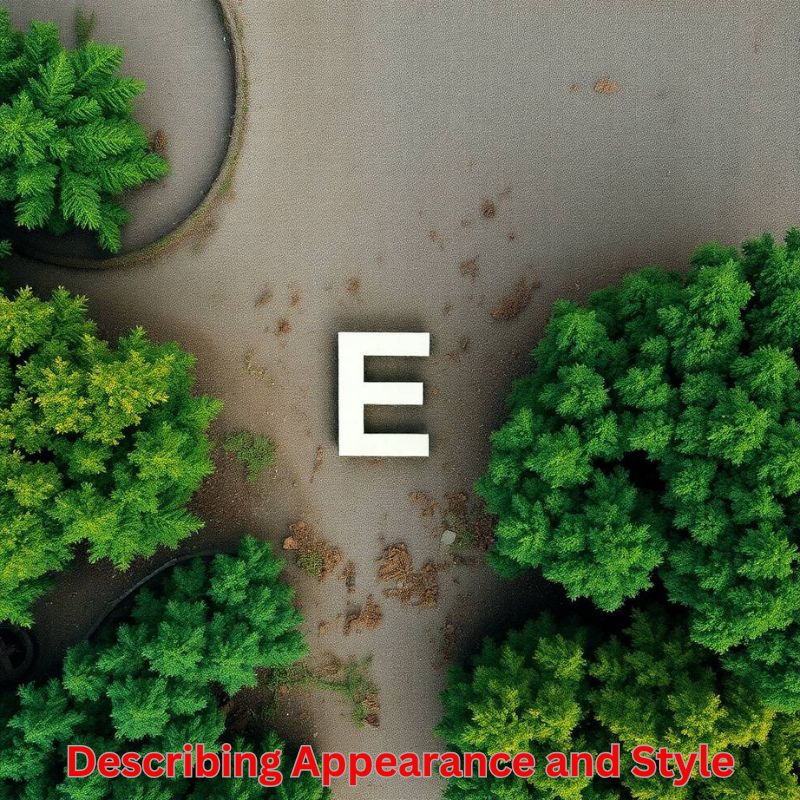
- Elegant: Stylish, graceful, and refined. Example: “Her elegant dress turned heads at the gala.”
- Eccentric: Unconventional and quirky in a way that attracts attention. Example: “He has an eccentric fashion sense that never goes unnoticed.”
- Exquisite: Extremely beautiful and finely detailed. Example: “The exquisite craftsmanship of the jewelry made it a valuable heirloom.”
- Eye-catching: Attractive or likely to grab attention. Example: “The eye-catching mural brightened up the street.”
- Effulgent: Radiantly bright or shining. Example: “The effulgent glow of the sunset bathed the landscape in gold.”
- Earthy: Simple, natural, or connected to the earth. Example: “The earthy tones of the room made it feel cozy and grounded.”
- Enigmatic: Mysterious or puzzling in a way that invites curiosity. Example: “Her enigmatic expression left us wondering what she was thinking.”
- Emaciated: Extremely thin, often due to illness or lack of nutrition. Example: “The emaciated dog was rescued from the streets.”
Describing Objects and Things
When describing objects or things, specific adjectives can make your descriptions clearer and more engaging. Here are a few adjectives starting with “E” that are particularly useful for this purpose.
- Enduring: Lasting or continuing for a long time. Example: “The enduring popularity of the novel speaks to its timeless themes.”
- Ethereal: Delicate and light in a way that seems too perfect for this world. Example: “The ethereal beauty of the forest at dawn was breathtaking.”
- Exquisite: Perfectly detailed, refined, or beautiful. Example: “The exquisite details on the antique clock made it a collector’s item.”
- Expensive: Costing a large amount of money. Example: “That is an expensive car, so it’s not surprising to see it on the road.”
- Enormous: Extremely large in size or magnitude. Example: “The enormous building towered over the city skyline.”
- Eccentric: Strange, unconventional, and not following usual norms. Example: “The eccentric design of the chair made it a conversation piece.”
- Elegant: Beautiful in a way that is simple and sophisticated. Example: “The elegant decor in the living room created a serene atmosphere.”
- Exotic: Strikingly unusual or different, often in a way that is alluring. Example: “The exotic flowers in the garden were a sight to behold.”
Describing Events and Situations
Certain events or situations call for more descriptive language, especially when you’re trying to convey the uniqueness or impact of a moment. The following adjectives are ideal for these purposes.
- Epic: Grand, heroic, or momentous. Example: “Their epic journey across the desert was the stuff of legend.”
- Euphoric: Extremely happy or elated. Example: “The euphoric celebrations after the victory continued late into the night.”
- Exhilarating: Bringing great excitement or joy. Example: “The exhilarating ride down the mountain was a rush.”
- Exhausting: Extremely tiring or draining. Example: “The exhausting marathon took a toll on her energy.”
- Exemplary: Serving as a perfect example or model. Example: “Her exemplary performance on the project earned her an award.”
- Eventful: Marked by numerous significant events or activities. Example: “The eventful day included a series of important meetings.”
- Ephemeral: Lasting for a very short time. Example: “The ephemeral beauty of the sunset left everyone speechless.”
- Equitable: Fair and impartial. Example: “The equitable distribution of resources benefited everyone.”
Describing Relationships and Social Interactions
Relationships, whether personal or professional, are often complex. These adjectives can help you describe interactions, dynamics, or behaviors in a more specific way.
- Empathetic: Understanding and sharing another person’s feelings. Example: “Her empathetic nature made her a beloved friend.”
- Exclusive: Limited to a particular group or individual. Example: “The exclusive event was only for VIP guests.”
- Exhaustive: Thorough and comprehensive, covering all aspects. Example: “The exhaustive research on the topic left no question unanswered.”
- Engaging: Captivating and holding the interest of others. Example: “His engaging storytelling kept the audience on the edge of their seats.”
- Enduring: Remaining strong or lasting over time. Example: “Their enduring friendship was built on trust and mutual respect.”
- Evasive: Avoiding or keeping distance from someone or something. Example: “She gave evasive answers during the meeting to avoid conflict.”
- Ethical: Following moral principles or standards. Example: “His ethical approach to business earned him the respect of his peers.”
Short Quiz with Answer
1. Which of the following adjectives means “overflowing with enthusiasm or excitement”?
- A) Elusive
- B) Exuberant
- C) Evasive
- D) Erratic
Answer: B) Exuberant
2. What does the adjective Egotistical describe?
- A) Someone who is extremely generous
- B) Someone who is excessively self-centered
- C) Someone who is mysterious
- D) Someone who is highly empathetic
Answer: B) Someone who is excessively self-centered
3. Which adjective would best describe an extremely thin person due to malnutrition?
- A) Emaciated
- B) Exquisite
- C) Exuberant
- D) Evasive
Answer: A) Emaciated
4. Which of the following is used to describe something that is “beautifully made or delicate”?
- A) Exquisite
- B) Exclusive
- C) Eccentric
- D) Exultant
Answer: A) Exquisite
5. What does the adjective Euphemistic refer to?
- A) A word used to replace something harsh or uncomfortable
- B) A word that signifies extreme happiness
- C) A word that conveys a sense of mystery
- D) A word used for everyday tasks
Answer: A) A word used to replace something harsh or uncomfortable
6. Which of the following adjectives means “full of energy, active, and vigorous”?
- A) Energetic
- B) Evasive
- C) Emotional
- D) Elongated
Answer: A) Energetic
7. Which adjective describes someone who is “unpredictable and inconsistent”?
- A) Erratic
- B) Empathetic
- C) Engaging
- D) Exemplary
Answer: A) Erratic
8. The word Elusive means:
- A) Easy to find
- B) Hard to capture or understand
- C) Overflowing with joy
- D) Simple and clear
Answer: B) Hard to capture or understand
9. Which of the following describes a “mysterious and puzzling” person?
- A) Empathetic
- B) Exasperated
- C) Enigmatic
- D) Exultant
Answer: C) Enigmatic
10. What does the adjective Elated mean?
- A) Filled with great joy or happiness
- B) Extremely tired or fatigued
- C) Angry or frustrated
- D) Sad and melancholy
Answer: A) Filled with great joy or happiness
11. Which of the following adjectives refers to something “extremely large in size”?
- A) Enigmatic
- B) Exquisite
- C) Elongated
- D) Enormous
Answer: D) Enormous
12. The adjective Ethereal means:
- A) Extremely delicate and light, almost otherworldly
- B) Extremely durable and sturdy
- C) Heavy and cumbersome
- D) Inconsistent and fluctuating
Answer: A) Extremely delicate and light, almost otherworldly
13. What would Exhaustive describe?
- A) A search or task that is not very thorough
- B) A process that is extremely tiring
- C) A process that is thorough and complete
- D) A person who is always happy
Answer: C) A process that is thorough and complete
14. Which of the following adjectives describes someone who is “hard to understand or comprehend”?
- A) Elusive
- B) Empathetic
- C) Exultant
- D) Erratic
Answer: A) Elusive
15. Which adjective best describes someone who is “understanding and sharing the feelings of others”?
- A) Exuberant
- B) Engaging
- C) Egotistical
- D) Empathetic
Answer: D) Empathetic
16. Evasive refers to someone who:
- A) Seeks to avoid direct answers
- B) Is highly energetic and enthusiastic
- C) Is compassionate and caring
- D) Acts predictably
Answer: A) Seeks to avoid direct answers
17. Which of the following adjectives means “simple and tasteful in appearance”?
- A) Elegant
- B) Eccentric
- C) Exhausting
- D) Exalted
Answer: A) Elegant
18. What does Enduring mean in the context of relationships?
- A) Short-lived
- B) Lasting for a long time
- C) Temporary
- D) Quick to fade
Answer: B) Lasting for a long time
19. Which of these adjectives means “extremely tired or drained”?
- A) Elated
- B) Exasperated
- C) Exhausted
- D) Exultant
Answer: C) Exhausted
20. Which adjective would best describe something that is “unusual, often from a distant or foreign location”?
- A) Elegant
- B) Elongated
- C) Exclusive
- D) Exotic
Answer: D) Exotic
21. The adjective Exuberant refers to someone who:
- A) Is filled with energy and enthusiasm
- B) Is calm and reserved
- C) Is easily frustrated
- D) Is always evasive
Answer: A) Is filled with energy and enthusiasm
22. What does Exclusive mean?
- A) Available to everyone
- B) Available only to a select few
- C) Rare and easily found
- D) Ordinary and commonplace
Answer: B) Available only to a select few
23. The word Empowered means:
- A) Feeling weak and vulnerable
- B) Feeling strong and confident
- C) Feeling confused
- D) Feeling indifferent
Answer: B) Feeling strong and confident
24. Which adjective describes something that is “delicate, light, and almost otherworldly”?
- A) Exhaustive
- B) Ethereal
- C) Empathetic
- D) Erratic
Answer: B) Ethereal
25. What does Elusive imply about a concept or idea?
- A) It is easily understood
- B) It cannot be easily captured or grasped
- C) It is predictable
- D) It is simplistic
Answer: B) It cannot be easily captured or grasped
26. Ebulient means:
- A) Overflowing with enthusiasm
- B) Extremely thin
- C) Reluctant to respond
- D) Completely calm
Answer: A) Overflowing with enthusiasm
27. Which of the following adjectives means “vividly attractive or captivating”?
- A) Exultant
- B) Exquisite
- C) Empathetic
- D) Erratic
Answer: B) Exquisite
28. Which adjective best describes a “strong, impactful event”?
- A) Exhilarating
- B) Exhausting
- C) Epic
- D) Elusive
Answer: C) Epic
29. Which adjective would you use to describe a situation that is “thorough and complete”?
- A) Exemplary
- B) Exhaustive
- C) Elongated
- D) Evasive
Answer: B) Exhaustive
30. Endless refers to something that:
- A) Has no end or conclusion
- B) Is very quick and short-lived
- C) Has a definite beginning and end
- D) Is easy to complete
Answer: A) Has no end or conclusion
31. What does Exalted describe?
- A) Low and insignificant
- B) Elevated in status or rank
- C) Evasive in nature
- D) Quiet and reserved
Answer: B) Elevated in status or rank
32. Which adjective means “simple, natural, and grounded”?
- A) Exotic
- B) Earthy
- C) Empathetic
- D) Erratic
Answer: B) Earthy
33. Euphoric describes a state of:
- A) Extreme sadness
- B) Intense happiness and excitement
- C) Calmness and serenity
- D) Annoyance and frustration
Answer: B) Intense happiness and excitement
34. Which of the following adjectives means “extremely expensive or valuable”?
- A) Exclusive
- B) Expensive
- C) Empathetic
- D) Elusive
Answer: B) Expensive
35. What does Erratic imply about behavior?
- A) Steady and predictable
- B) Unpredictable and inconsistent
- C) Thoughtful and considerate
- D) Excessively enthusiastic
Answer: B) Unpredictable and inconsistent
36. Ethereal is used to describe something that is:
- A) Solid and heavy
- B) Very light and delicate
- C) Commonplace and everyday
- D) Sharp and angular
Answer: B) Very light and delicate
37. Which of the following adjectives means “attracting or holding attention”?
- A) Engaging
- B) Exhaustive
- C) Elusive
- D) Emaciated
Answer: A) Engaging
38. Exultant refers to someone who is:
- A) Sad and dejected
- B) Filled with joy and triumph
- C) Hard to understand
- D) Unpredictable
Answer: B) Filled with joy and triumph
39. Which of these words describes something “lasting for a very short time”?
- A) Ephemeral
- B) Enduring
- C) Exuberant
- D) Elongated
Answer: A) Ephemeral
40. What does Exhausted mean?
- A) Full of energy
- B) Extremely tired
- C) Full of enthusiasm
- D) Extremely happy
Answer: B) Extremely tired
Conclusion: Elevate Your Communication with “E” Adjectives
Adjectives starting with the letter “E” offer a rich variety of descriptive possibilities, helping you communicate more effectively and creatively. From capturing emotions to painting vivid pictures, these words provide the precision needed to express your ideas clearly and compellingly. By adding just a few of these “E” adjectives to your vocabulary, you’ll find yourself more equipped to describe people, places, and things in a way that captures attention and fosters deeper connections.
Next time you find yourself reaching for a basic adjective, consider choosing one from this list to give your language a little extra flair. The more you practice, the more natural it will become to incorporate these engaging adjectives into your everyday conversations and writing.
So, which “E” adjective will you start using today? Let us know how you incorporate these words to enrich your communication!
